Nobody develops their worldview in a vacuum. It’s a product of your interactions with everybody you learn, hear and discuss to. I’m actually no exception.
I’ve benefited enormously from the concepts of different individuals. However typically, these thinkers’ concepts aren’t neatly encapsulated in a single, easy-to-read e-book. At the moment, I’d wish to share among the individuals who have influenced my considering probably the most.
To maintain the checklist manageable, I’d wish to concentrate on the individuals who have most enormously influenced my ideas on studying. Maybe I’ll write a later submit for extra normal influences, however right now, I’m sharing among the individuals who have taught me probably the most in regards to the topic I spend nearly all of my time enthusiastic about!
Facet Observe: As I used to be penning this, the ensuing essay turned out to be fairly lengthy (4000+ phrases). Thus, I’m splitting it into two components. This primary half covers extra of my influences from cognitive science, and the second half covers extra private ones.
1. Anders Ericsson
Anders Ericsson was a psychologist finest recognized for his work on deliberate observe. That is the idea that world-class efficiency—in music, athletics, chess and plenty of different domains—is finest defined by massive portions of targeted observe.
Ericsson’s analysis into observe started with a longitudinal examine, the place a person topic repeatedly practiced a short-term reminiscence activity to recollect strings of digits after listening to them solely as soon as. Famously, most individuals who do that check can efficiently recall between 5 to 9 digits. However, after appreciable observe, this highly-trained topic might efficiently recall over eighty digits. This breakthrough impressed a lifetime of labor exploring how targeted coaching and energy might elevate the bounds of human efficiency.
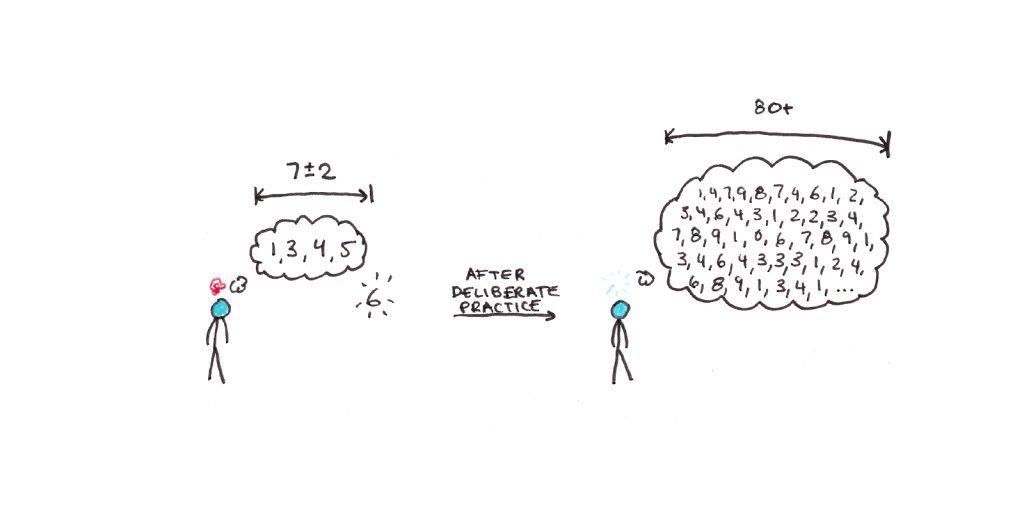
Professionally, Ericsson’s work was central in Cal Newport and my considering when designing our course, Prime Performer. His concentrate on the worth of strenuous observe periods has been a significant factor in my very own studying tasks.
Personally, I believe Ericsson’s work has formed a basic perception of mine that observe and examine can ameliorate most variations in expert efficiency. Whereas the skin world typically prefers people who find themselves effortlessly intelligent, I’ve come to admire extra these whose skills have emerged after painstaking work.
Listed here are some suggestions if you wish to learn extra:
- Peak – Ericsson’s e-book, co-authored with journalist Robert Pool, geared toward a non-academic viewers.
- The Function of Deliberate Apply – Ericsson’s highly-cited paper, written with Ralf Krampe and Clemens Tesch-Römer, introducing the idea of deliberate observe.
- Towards a Normal Idea of Experience – Of all Ericsson’s edited volumes, I discovered this probably the most fascinating in reviewing the state of theories of how skilled efficiency works.
2. John Sweller
Some individuals persuade you instantly to their viewpoint. Others, you struggle vehemently till you lastly give up to the load of their arguments and admit they have been proper. For me, John Sweller was the latter.
My introduction to his work got here from his research that confirmed, opposite to my prior assumption, that you just don’t essentially study extra from fixing an issue your self reasonably than having it’s taught to you straight.
Sweller formulated cognitive load idea, which I reviewed in-depth right here. The gist of it’s that constraints on working reminiscence type the first bottleneck to studying abilities we haven’t developed to accumulate robotically.
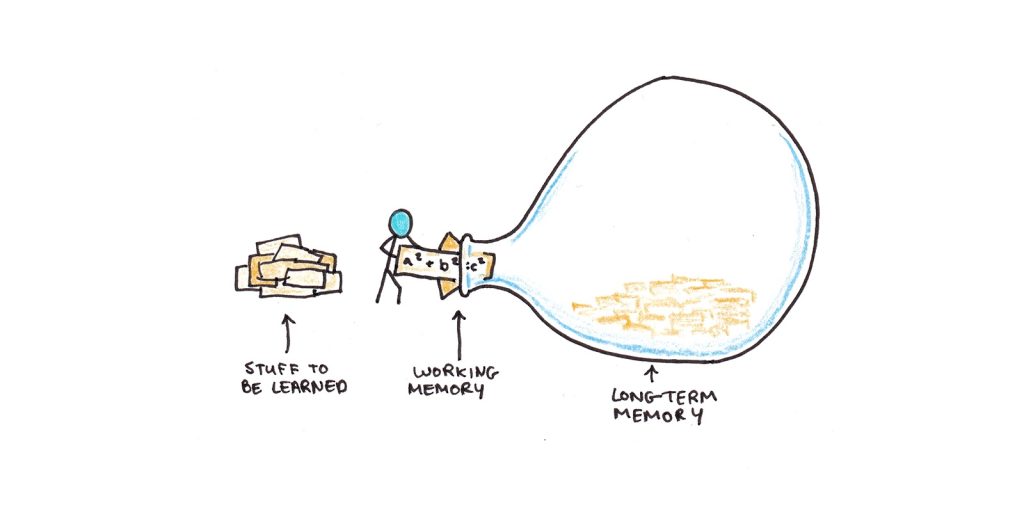
A key discovering of cognitive load idea is that college students with low prior expertise with a ability profit extra from observing examples and explanations than from attempting to determine issues on their very own. That is typically true, even when the scholar may efficiently remedy the issues they’re offered.
Studying Sweller, and different cognitive load theorists’ work, helped me notice that almost all of data we have to carry out advanced abilities comes from others and that boundaries that make it tougher to study from others, similar to poor explanations, omitted psychological steps, or extreme reliance on figuring issues out for your self, are sometimes the most important preliminary barrier in studying.
Listed here are some suggestions if you wish to learn extra:
- Sweller’s Cognitive Load Idea in Motion – Authored by Oliver Lovell, this e-book finest explains Sweller’s work and its significance to instructors and lecturers.
- Why Minimal Steering Doesn’t Work – This paper sharply critiques the pervasive perception that college students profit when left to determine issues out independently reasonably than being explicitly taught.
- The Energy of Express Instructing and Direct Instruction – Authored by Greg Ashman, considered one of Sweller’s college students, this e-book is an easy-to-read abstract of the proof supporting cognitive load idea. Whereas nobody argument by itself offers a knockout of opponents, the load of proof throughout a number of fields is troublesome to refute.
3. Robert Bjork
Robert Bjork is a cognitive psychologist finest recognized for his idea of fascinating difficulties.
The fundamental thought behind fascinating difficulties is that sure interventions could make coaching appear much less profitable as a result of college students carry out extra poorly checks instantly after the intervention. But, in the long run, these interventions can create abilities and recollections which are extra sturdy or extensively relevant to different conditions than extra instantly efficient ones.
Some key fascinating difficulties embody:
- Spacing. Spreading learning out over time reduces speedy efficiency, however enhances long-term reminiscence. Cramming could have a greater short-term consequence, however it’s much less environment friendly for studying.
- Retrieval. Recalling a reminiscence strengthens it greater than reviewing does.
- Variability. Training a number of examples, abilities or problem-types in the identical session slows studying however ends in extra switch of that studying to new abilities, longer retention, or each.
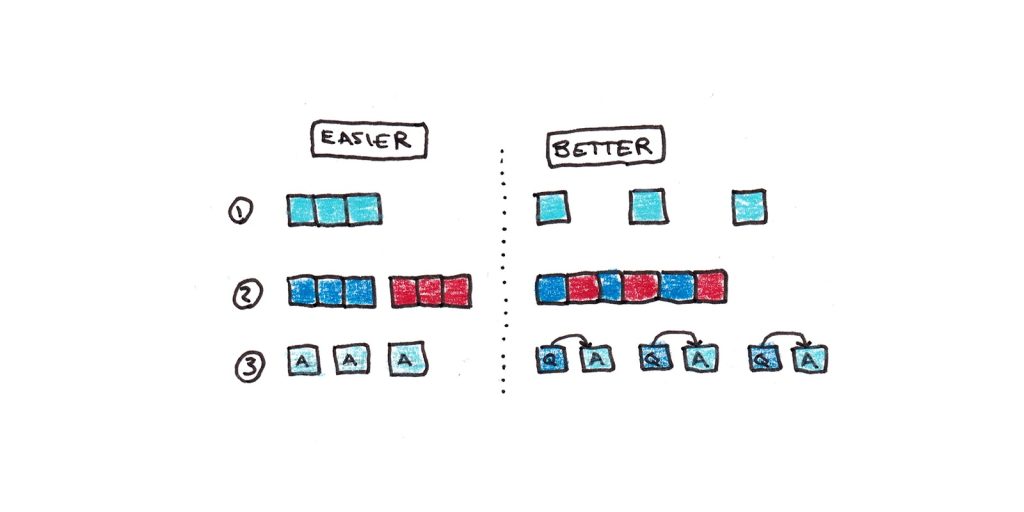
One other frequent discovering in Bjork’s work is that college students fail to understand the worth of fascinating difficulties.
College students, even those that undergo the protocol and study extra below the tougher activity constraints, are inclined to price the better observe as higher. I’ve argued that this phantasm is a vital purpose many college students have interaction in limitless overview periods reasonably than observe checks, which require recalling the fabric.
Clearly, there’s rigidity between fascinating difficulties (which argues retrieval works higher than overview) and cognitive load idea (which argues examples are higher than problem-solving efforts for novices). I would write a future submit digging into the debates, nevertheless it appears pretty clear that each seeing examples and retrieval observe are necessary for studying advanced abilities.
Listed here are some suggestions if you wish to learn extra:
- A New Idea of Disuse – Bjork’s paper, co-authored with Elizabeth Bjork, argues that our recollections have each retrieval and storage strengths—implying that recollections will be well-learned however briefly inaccessible once we don’t observe them.
- Self-Regulated Studying – A superb abstract of fascinating difficulties and our frequent failure to understand them in our personal coaching.
4. Michelene Chi
Michelene Chi’s best-known work is her examine of physics specialists and novices. When requested to categorize issues by kind, Chi discovered that specialists might appropriately type the issues by the basic physics precept concerned within the resolution. In distinction, novices targeted on superficial options of the issue, similar to whether or not it concerned a ramp or pulley.
A frustration of many lecturers is that novices, even after taking a number of courses, typically purpose about issues in a superficial method. After we train physics or economics, we don’t need college students simply to have the ability to deal with textbook issues—we wish them to use these summary ideas to different domains.
Nonetheless, this seems to be the pure trajectory of growing experience. Summary ideas, which let you navigate superficially totally different issues which have a typical underlying precept, require many various examples and experiences to generalize. With just a few explanations and drawback units, most courses don’t present a possibility to succeed in this stage of generalization.
Listed here are some suggestions if you wish to learn extra:
5. Herbert Simon
Herbert Simon was a powerful polymath. He helped launch the sector of synthetic intelligence, outlined a brand new paradigm for the psychology of advanced abilities, wrote a traditional e-book on administrative idea, and even received a Nobel prize in economics for his idea of bounded rationality.
His idea of problem-solving has influenced me probably the most. In accordance with this idea, the best way we remedy issues is:
- We type some psychological illustration of the issue. This creates an issue house that has:
- Our present state.
- A way of checking whether or not we’ve reached a passable resolution.
- Strategies for altering from the present state to a brand new state.
- We apply these strategies in a looking out course of, searching for a state that satisfies the answer.
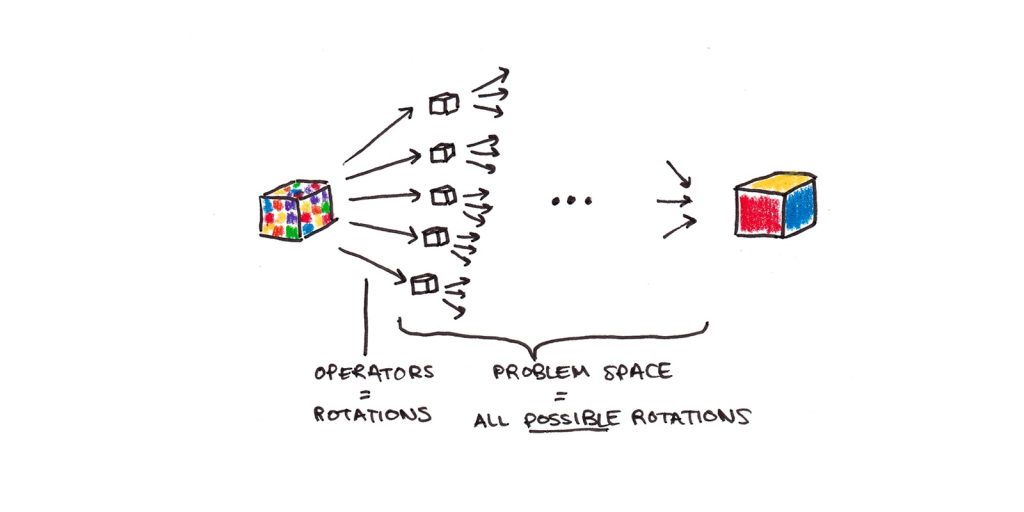
The overwhelming majority of issues we face in life have monumental drawback areas. The principal method we cope with this problem is by making use of sturdy strategies, primarily discovered from different individuals, to chop the dimensions of the issue house down dramatically.
Listed here are some suggestions if you wish to learn extra:
- Human Drawback Fixing – His landmark e-book, with Allen Newell. Learn my overview right here.
- Notion in Chess – A traditional paper authored with William Chase, arguing that chess experience is determined by accumulating perceptual “chunks.” They estimate {that a} chess skilled could have tens of hundreds of those perceptual models in reminiscence, corresponding to the variety of phrases a fluent speaker is aware of in a language.
6. John Anderson
Most psychological theories are slim in scope. A scientist devises an experimental paradigm, discovers an fascinating impact, after which a flurry of analysis follows trying to clarify, refute or delineate its boundary situations.
John Anderson’s career-spanning work with ACT-R is totally different. As a substitute of attempting to clarify a single psychological quirk, he has tried to construct a pc simulation that might mannequin your entire psychological means of ability acquisition—from how individuals comprehend examples and directions to what adjustments of their minds as they acquire extra observe.
I’ve reviewed Anderson’s idea right here, however the primary thought is that cognitive abilities include two components: declarative and procedural reminiscence. Declarative reminiscence is for details and examples, and it really works associatively. Procedural reminiscence consists of manufacturing guidelines that set off when sure situations are met. Talent studying is a means of, first, buying declarative recollections that specify and information the ability, after which changing these to manufacturing guidelines that may set off robotically.

Listed here are some suggestions if you wish to learn extra:
- The Switch of Cognitive Talent – Co-written with Mark Singley, this was an early demonstration of the idea, it additionally has a superb overview of the analysis on ability switch— how observe in a single ability influences one other.
- The Atomic Parts of Thought – Co-written Christian Lebiere, it is a full description of the ACT-R idea and what it implies for ability improvement.
- How Can the Human Thoughts Happen within the Bodily Universe? – Anderson’s final e-book explains the motivation for growing an entire cognitive structure—an entire view of how the thoughts works—reasonably than simply analyzing a selected psychological phenomenon.
7. Walter Kintsch
Walter Kintsch was an skilled on the psychology of studying comprehension. He developed the Development-Integration idea of comprehension, which argued that once we learn one thing, we:
- Kind a number of, conflicting representations of the textual content.
- These conflicting representations inhibit one another in order that solely the most definitely choice emerges into consciousness.
- Along with a literal understanding of the textual content, we type a state of affairs mannequin that permits us to make inferences not explicitly talked about within the textual content.
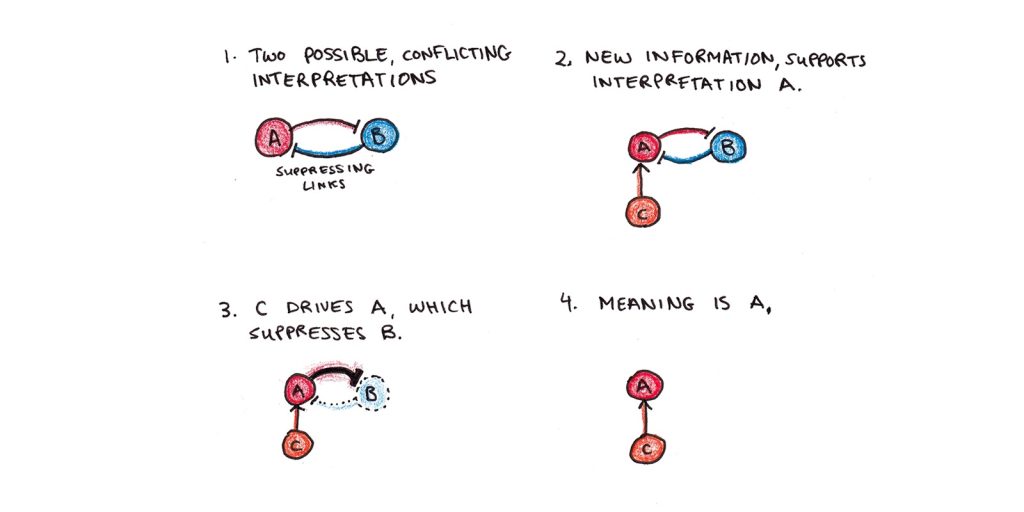
I’ve reviewed the complete idea right here. Whereas Kintsch targeted on studying comprehension, his idea of comprehension may be utilized to different mental abilities and domains of experience.
Listed here are some suggestions if you wish to learn extra:
- Comprehension – Kintsch’s e-book outlining the Development-Integration idea.
- Studying from texts: Results of prior data and textual content coherence – An fascinating examine displaying that, for higher-knowledge college students, a much less well-organized textual content resulted in additional studying than a better-organized textual content.
- Lengthy-Time period Working Reminiscence – Co-authored with Anders Ericsson, one other main affect of mine, this paper explains their idea of how specialists can bypass the well-documented working reminiscence limitation when performing expert duties.
_ _ _
That’s it for right now. Within the second half, I’ll spherical out a number of extra of my tutorial influences, fashionable writers, and people who’ve formed my enthusiastic about studying.

